
Sounds eerily familiar, yet this is not a novel about the COVID-19 pandemic. Despite uncanny similarities to the present—and unlike much contemporary dystopian fiction about environmental collapse—the second novel by the Cameroonian-born author is a more realistic saga about taking a stand against all odds. Thriving in the shadow of colonialism in the fictional African village of Kosawa, the multinational corporation Pexton profits from the oil beneath the land without regard for the air and water, which has “progressed from dirty to deadly,” as the country’s dictatorial leader enjoys the wealth and privilege that accompanies this arrangement. It is such intricacies of power that Mbue, who calls herself “a student of human complexity,” explored in her first novel, Behold the Dreamers (Random House, 2016), and that she spreads onto a larger, more dramatic canvas in How Beautiful We Were.
هذه القصة مأخوذة من طبعة March - April 2021 من Poets & Writers Magazine.
ابدأ النسخة التجريبية المجانية من Magzter GOLD لمدة 7 أيام للوصول إلى آلاف القصص المتميزة المنسقة وأكثر من 9,000 مجلة وصحيفة.
بالفعل مشترك ? تسجيل الدخول
هذه القصة مأخوذة من طبعة March - April 2021 من Poets & Writers Magazine.
ابدأ النسخة التجريبية المجانية من Magzter GOLD لمدة 7 أيام للوصول إلى آلاف القصص المتميزة المنسقة وأكثر من 9,000 مجلة وصحيفة.
بالفعل مشترك? تسجيل الدخول

Literary MagNet
When Greg Marshall began writing the essays that would become his memoir, Leg: The Story of a Limb and the Boy Who Grew From It (Abrams Press, June 2023), he wanted to explore growing up in Utah and what he calls \"the oddball occurrences in my oddball family.\" He says, \"I wanted to call the book Long-Term Side Effects of Accutane and pitch it as Six Feet Under meets The Wonder Years.\" But in 2014 he discovered his diagnosis of cerebral palsy, information his family had withheld from him for nearly thirty years, telling him he had \"tight tendons\" in his leg. This revelation shifted the focus of the project, which became an \"investigation into selfhood, uncovering the untold story of my body,\" says Marshall. Irreverent and playful, Leg reckons with disability, illness, queerness, and the process of understanding our families and ourselves.
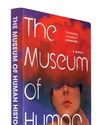
THE MEUSEUM OF HUMAN HISTORY
READING The Museum of Human History felt like listening to a great harmonic hum. After I finished it I found the hum lingering in my ears. Its echo continued for days.
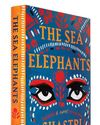
The Sea Elephants
SHASTRI Akella's poised, elegant debut, The Sea Elephants, is a bildungsroman of a young man who joins a street theater group in India after fleeing his father's violent disapproval, the death of his twin sisters, and his mother's unfathomable grief.
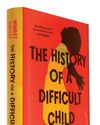
The History of a Difficult Child
MIHRET Sibhat's debut novel begins with God dumping rain on a small Ethiopian town as though. He were mad at somebody.
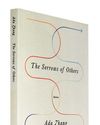
The Sorrows of Others
AS I read each story in Ada Zhang’s brilliant collection, The Sorrows of Others, within the first few paragraphs— sometimes the first few sentences— I felt I understood the characters intimately and profoundly, such that every choice they made, no matter how radical, ill-advised, or baffling to those around them, seemed inevitable and true to me.
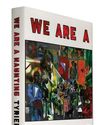
We Are a Haunting
TYRIEK White’s debut novel, We Are a Haunting, strikes me as both a love letter to New York City and a kind of elegy.

RADICAL ATTENTION
IN HER LATEST BOOK, THE LIGHT ROOM: ON ART AND CARE, PUBLISHED BY RIVERHEAD BOOKS IN JULY, KATE ZAMBRENO CELEBRATES THE ETHICAL WORK OF CAREGIVING, THE SMALL JOYS OF ORDINARY LIFE, AND AN ENGAGEMENT WITH THE NATURAL WORLD WITHIN HUMAN SPACES.

The Fine Print
HOW TO READ YOUR BOOK CONTRACT

First
GINA CHUNG'S SEA CHANGE
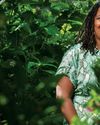
Blooming how she must
WITH ROOTS IN NATURE WRITING, ENVIRONMENTAL JUSTICE, POETRY, AND PHOTOGRAPHY, CAMILLE T. DUNGY'S NEW BOOK, SOIL: THE STORY OF A BLACK MOTHER'S GARDEN, DELVES INTO THE PERSONAL AND POLITICAL ACT OF CULTIVATING AND DIVERSIFYING A GARDEN OF HERBS, VEGETABLES, FLOWERS, AND OTHER PLANTS IN THE PREDOMINANTLY WHITE COMMUNITY OF FORT COLLINS, COLORADO.